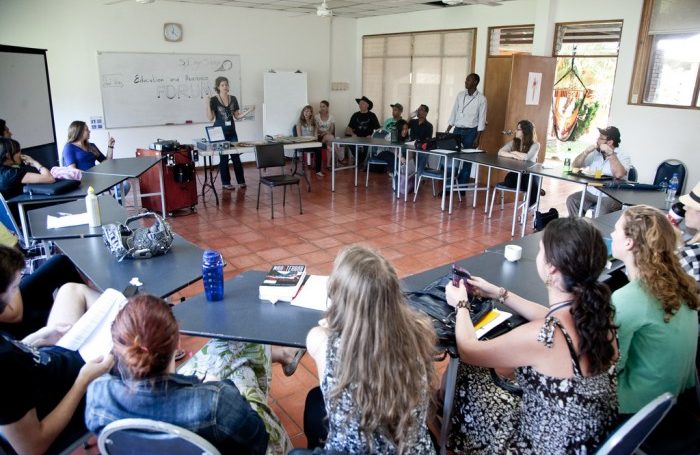
“Gendered language” refers to words that carry unnecessary masculine connotations, but are purportedly gender-neutral according to users and dictionaries. But the intention of the speaker and the denotation of a word do not control the meaning that is received and internalized by listeners. Research in psychology suggests that word choice influences our perception and cognition, such that gendered language actually reinforces patriarchal attitudes about who is qualified or expected to be a “congressman” or “statesman.” In other words, the connotation shapes the meaning of words, which shapes our understanding of concepts. Many gendered words, like “mankind,” have perfectly good alternatives that eschew any reference to gender, like “humankind” or “humanity.” These linguistic options, in addition to the decreasing popularity of gendered words in the social sciences, present a puzzle for IR: why are so many IR academics still using gendered language, when they don’t have to, and when they should know better?
The list of gendered IR terms is long: “statesman,” “brinksmanship,” “man-made,” “mankind,” “manning,” and “manpower” are some of the most common. As a young woman pursuing a career in mainstream IR, and with an interest in security studies, these words add insult to the injury of seeing panels, syllabi, and the TRIPS survey dominated by men. These discouragements to women entering a male-dominated field are often overlooked because they are psychological. Being one of few women in an ISA panel makes one feel highly visible at best, and unwelcome at worst. Gendered language sends the message that I am not expected to be a foreign policymaker (because authors choose “statesman”) or the chair of a committee (because authors choose “chairman”). These kinds of daily exclusions weigh on my psyche.
I am often told, in response to such complaints, that I should take a class, attend a panel, or contact a scholar who works on Feminist IR theory. I am a materialist, a theorist of geopolitics. I should not have to change my scholarly interest in order to find an inclusive community. No subject or topic is inherently male-dominated, so there must be something discouraging women from pursuing the most masculinized areas of study. It is the responsibility of all IR scholars to help identify and extirpate the reasons young women are deterred from particular topics. The best places to look are those where we make active choices, choices that can be re-thought and re-directed to neutralize the highly gendered spaces we create with our words and actions.
Replacing “man-made” with “anthropogenic,” or coining “brinkship” to replace “brinksmanship,” will not solve the gender problem in International Relations, but it will increase the visibility of our quotidian contributions to patriarchy. What we read reinforces what we see, and what we write reflects what we want to see. I do not see myself in most of the texts that I study and engage with. I do not see people who look like me on the Presidential Theme Panels at the ISA. Affirmative action in admissions, hiring, and panel placement can only do so much because there is problem of “self selection.” We need to seriously consider the idea that women select their field at least partially because of the “man-made” social environment that surrounds it.
My power is not “manpower,” but it is just as strong.
Further Reading on E-International Relations
- Opinion – Breaking Boundaries to Reimagine Space is Crucial
- Machiavelli as Misogynist: The Masculinization of Fortuna and Virtù
- Gender Representation in IR Journals: Experience from Indonesia
- Gender Troubled? Three Simple Steps to Avoid Silencing Gender in IR
- Opinion – How Polish Women Fight Their Right-Wing Government
- What Can IR Learn from the Politics of Gender in the Global South?